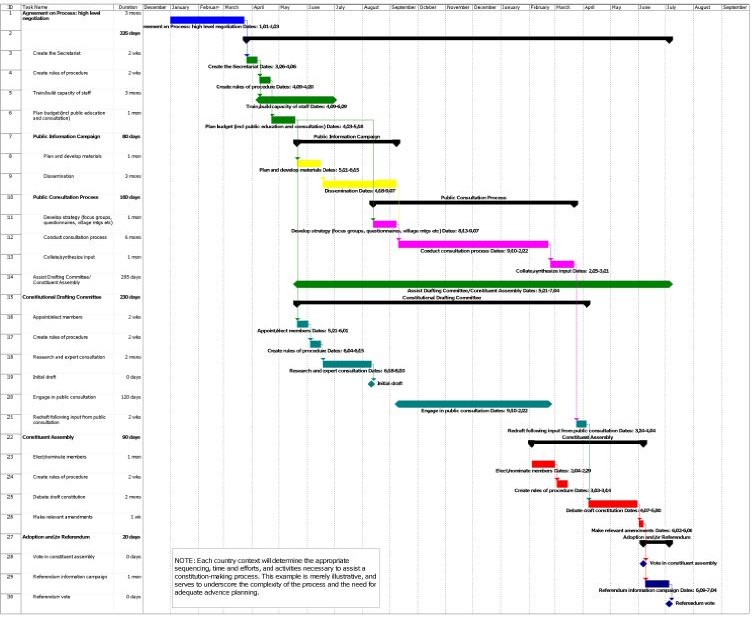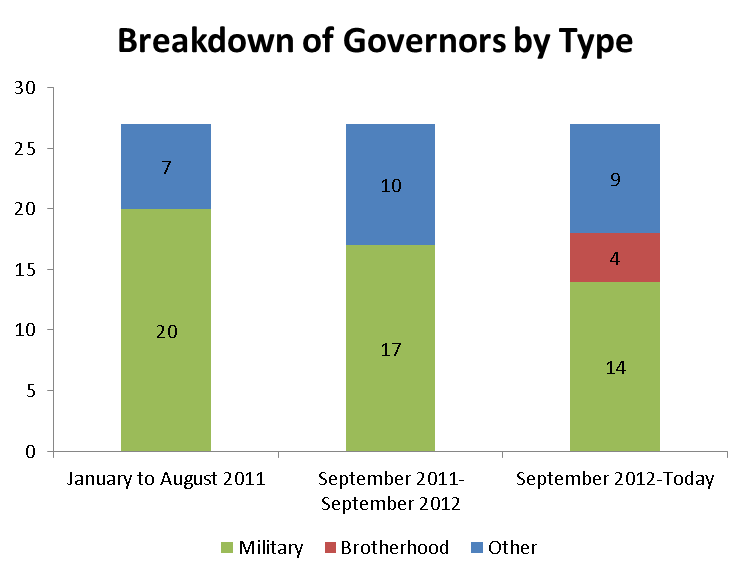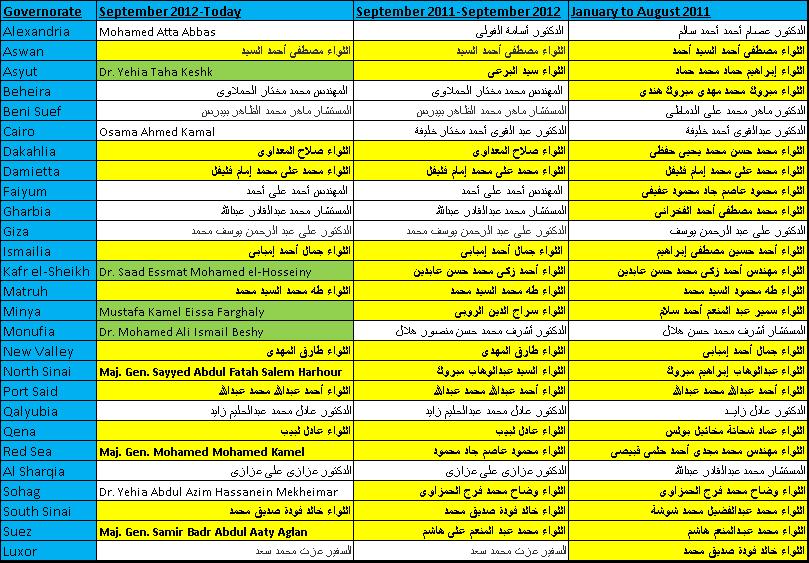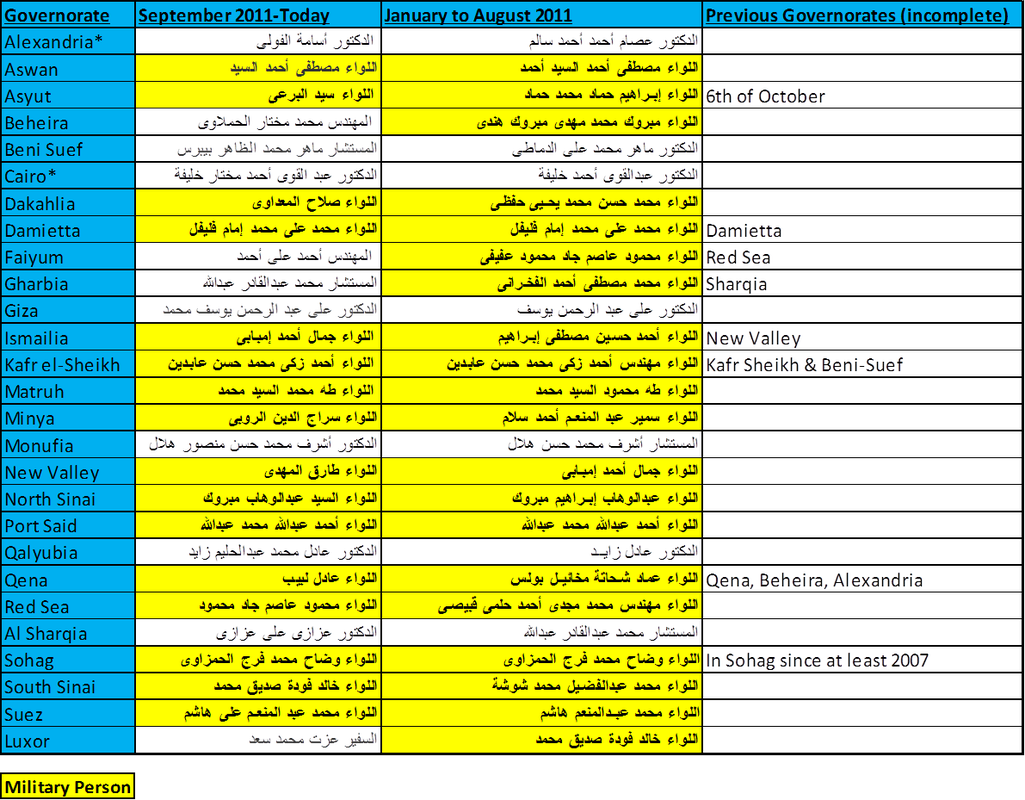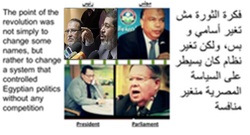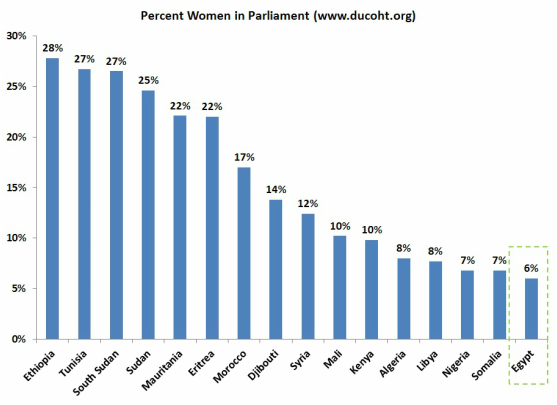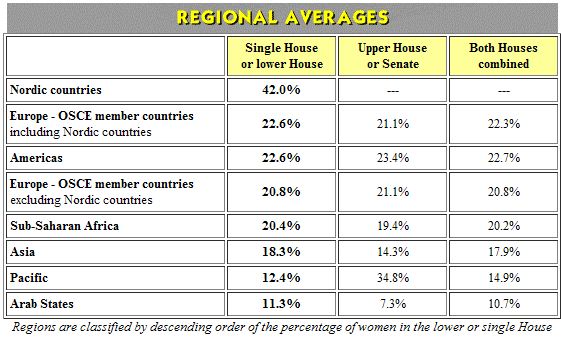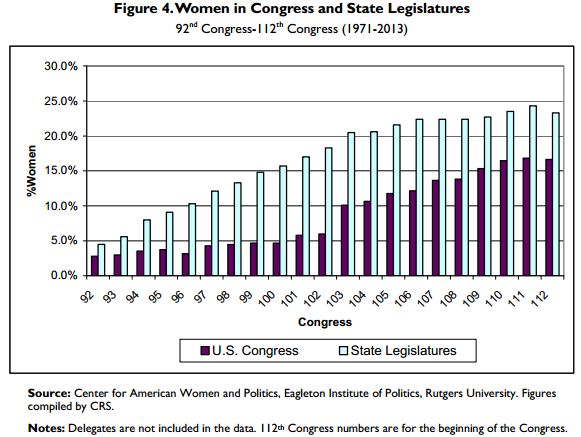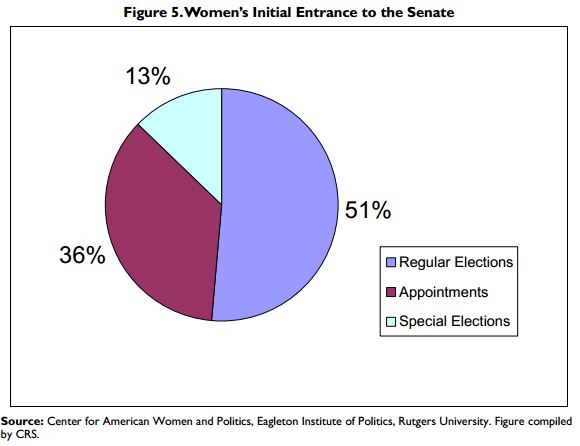The full report outlines the principles that the UN has found beneficial through their experience, I don’t see us including many of them…
Additionally, below is a document "Constitution Building Processes and Democratization: A Discussion of Twelve Case Studies" - I think Rwanda is an interesting example.
Popular consultation certainly brought about public support for a Rwanda constitution, as it did in South Africa—another country with a highly participatory process. In contrast, the people have strongly rejected the constitutions in Nigeria and Bahrain, which were not at all participatory for the very reason that they were imposed on, rather than made by, the people.
The cases reviewed in the IDEA study also emphasized that frequently the conflicts resulted from, or were exacerbated by, stark elite-population divisions. Thus, any chance of long-term resolution of such conflicts would require the sort of dialogue and negotiation that was rendered possible by the participatory national dialogue processes. (I think this is pretty applicable to Egypt, particularly with relation to the labor strikes – also, another paper I read stated that
In the study, the more representative and more inclusive constitution building processes resulted in constitutions favoring free and fair elections, greater political equality, more social justice provisions, human rights protections, and stronger accountability mechanisms. In contrast, processes dominated by one interest or faction tended to result in constitutions favoring that interest or entrenching power in the hands of certain groups. Moreover, the more participatory processes initiated a dialogue and began a process of democratic education in societies that had not had political freedom or the chance to shape the governance of their state in the past. The participatory processes seem to have empowered the people.
Encarnación has argued that the key difference between the two outcomes is the question of who participated in the bargaining cartel. In Venezuela, Colombia, and Brazil the pact-making was elite-driven and secretive with few powerful actors, including the outgoing regime, whereas in Spain the bargaining group included practically the whole “ideological spectrum.” Thus, negotiations that involve a small number of elite participants, seek to impose long-term power divisions, restrict the policy agenda, and limit government accountability to the broader population, should be avoided as they undermine the quality of the democracy created in the long-term.
HOWEVER, to be fair and present the counter-argument, the following paper states, in summary, in certain circumstances, direct mass participation appears manipulable, and in poorly institutionalized environments mass participation can actually help contribute to a democratic breakdown" in which "“threat-based bargaining” occurs - where both sides attempted to mobilize portions of the masses in order to pressure the other side into a favorable deal
Finally, the evidence here helps qualify one of the more important normative recommendations from existing work: that constitution-making should be highly participatory. Participation in constitution-making is said to increase the legitimacy of the constitution-making process, improve the quality of the product, and to increase the civic virtue of citizens. Further, some scholars led by Thomas Franck have asserted that there is an emerging norm of customary international law that constitution-making be a very participatory process. These scholarly views in favor of participation are closely linked to the dualist theory of democracy, which holds that constitution-making moments are qualitatively different from ordinary political moments.
Empirical evidence on these claims about the value of participation is mixed. There are cases where high degrees of public participation have been successfully integrated into constitution-making processes: South Africa is a well-known example. The fascinating process in Iceland, where the drafting council is making massive use of social media to get input into the process, may be another. However, one large-n empirical study of post-conflict constitution-making found that levels of participation had no effect on post-constitution-making levels of violence in many regions of the world. Further, Moehler’s detailed fieldwork in Uganda found that citizens who had participated in that country’s constitution-making process actually developed lower levels of trust in government than their fellow-citizens who had participated less.204 Rather than instilling a sense of civic virtue, participation disenchanted citizens by acquainting them with a dysfunctional political system.
Levels of participation in the examples studied for this paper were not highly correlated with the values attributed to participation. It is commonly noted in the literature that forms of participation such as referenda may have little effect on the process, because they may be too manipulable to control power. But more hands-on forms of constitution-making like civil society participation may also do little to enhance either the quality or legitimacy of the constitutional product. In Venezuela, very high levels of participation by civil society had no real impact on the final product but rather tended to affect peripheral provisions that were unimportant to Chavez and which constituted mere window-dressing. High levels of civil society participation did not prevent the constitution from being used to impose a competitive authoritarian regime.
Bolivia offers a more important point: very high levels of participation, at least in a polarized political environment, may make constitution-making much more difficult and may thus threaten a breakdown of order. Elster and others have noted that conducting deliberations in public may sometimes make agreement more difficult because representatives working under the conditions may stick to their principles and be unwilling to make hard political compromises.208 what happened in Bolivia is more what Elster calls “threat-based bargaining”: both sides attempted to mobilize portions of the masses in order to pressure the other side into a favorable deal.209 The trouble is that this is a dangerous game, in two senses. First, as Elster notes the masses on each side, once mobilized and ideologically charged, may narrow the range of possible agreement, perhaps even causing it to disappear entirely.
Bolivian delegates were unwilling to make deals that they otherwise would have cut for fear of angering their mass supporters. Second, the mobilized masses might start agitating for their own purposes and not those of the political elites. In Bolivia, the assembly essentially broke down over an issue, the location of the capital city, which was pushed by the masses in Sucre rather than by any of the party elites. These conditions—highly mobilized and polarized mass supporters—may be fairly common during regime changes in the developing world. As noted below, in some respects Egypt may combine similarly high levels of participation with significant polarization.211 And constitutional moments combine sets of factors that may make mass participation particularly difficult to process: mass expectations are often unrealistically high, and there are no institutional frameworks capable of channeling the public’s demands.
None of this indicates that mass participation is a bad idea under all circumstances. But it may help qualify its utility: in certain circumstances, direct mass participation appears manipulable, and in poorly institutionalized environments mass participation can actually help contribute to a democratic breakdown.

